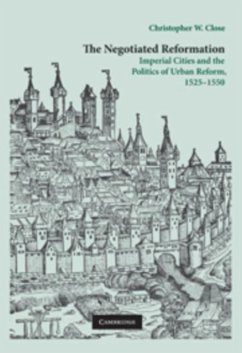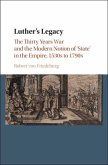Utilizing evidence from numerous imperial cities, this book offers an explanation for the spread and survival of urban reform during the sixteenth century. By analyzing the operation of regional political constellations, it reveals a common process of negotiation that shaped the Reformation in the Holy Roman Empire. It reevaluates traditional models of reform that leave unexplored the religious implications of flexible systems of communication and support among cities. Such networks influenced urban reform in fundamental ways, affecting how Protestant preachers moved from city to city, as well as what versions of the Reformation city councils introduced. This fusion of religion and politics meant that with local variations, negotiation within a regional framework sat at the heart of urban reform. The Negotiated Reformation therefore explains not only how the Reformation spread to almost every imperial city in southern Germany, but also how it survived imperial attempts to repress religious reform.
Dieser Download kann aus rechtlichen Gründen nur mit Rechnungsadresse in A, B, BG, CY, CZ, D, DK, EW, E, FIN, F, GR, HR, H, IRL, I, LT, L, LR, M, NL, PL, P, R, S, SLO, SK ausgeliefert werden.









